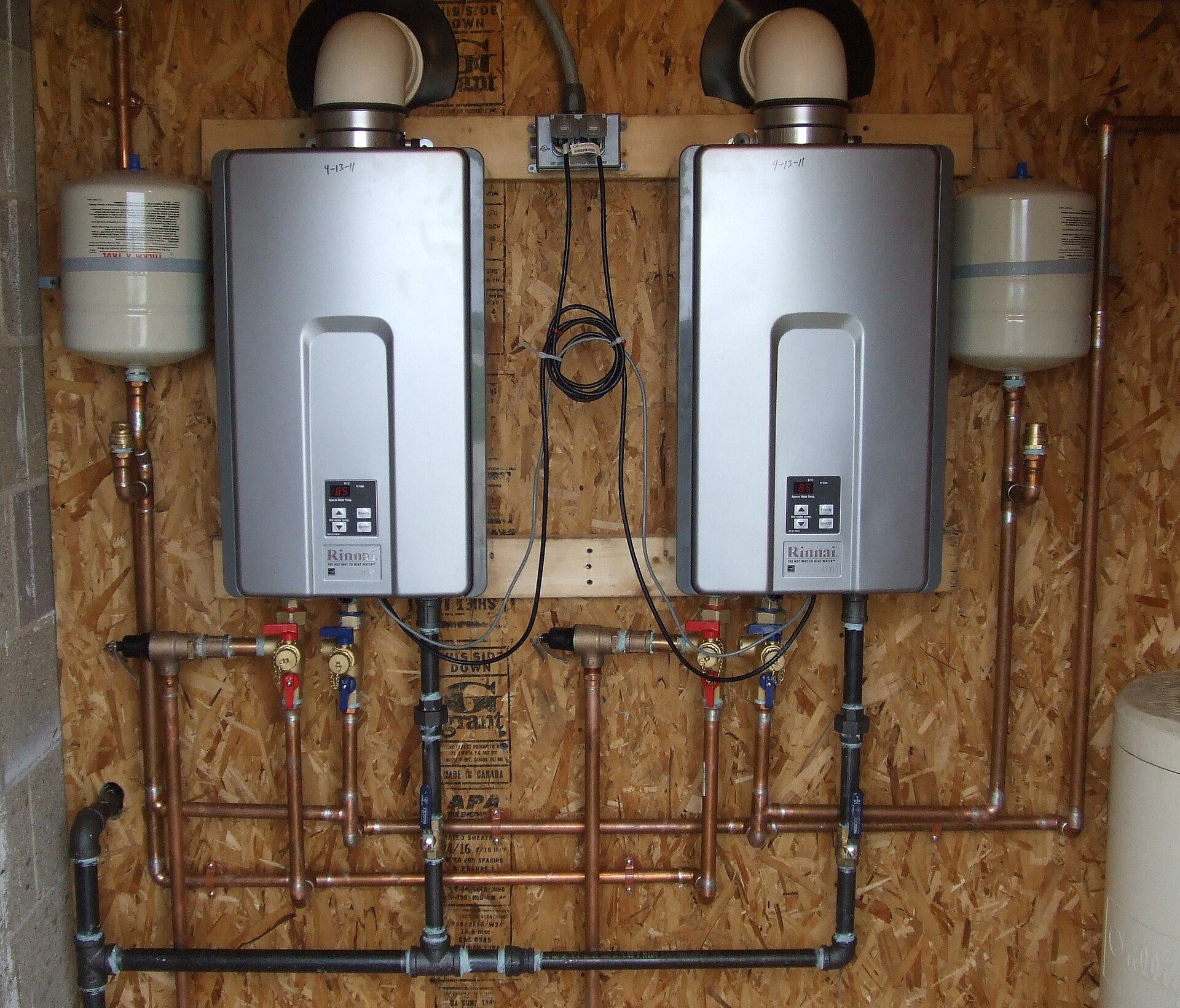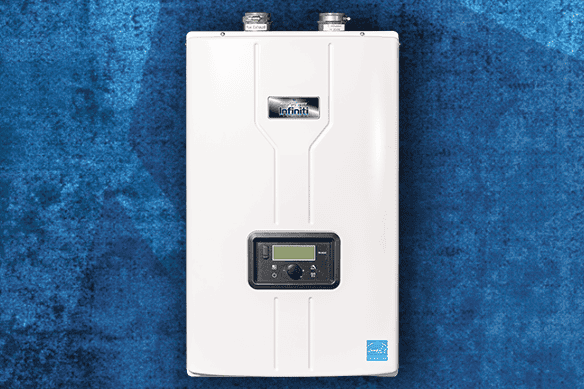How do you actually feel in relation to Unveiling the Hot Trend: The Benefits of Tankless Water?

In a globe where ease and efficiency reign supreme, it's not a surprise that home owners are continuously looking for smarter methods to manage their home's power usage and convenience. One innovation that has progressively acquired appeal is the tankless hot water heater. However just what makes these systems stand out from the standard tank-based designs the majority of us grew up with? Allow's dive in and discover the benefits of tankless water heaters, aiding you determine if it's time to make the button in your home.
Intro
Image this: you enter the shower after a long day, expecting a comforting waterfall of hot water, just to be greeted by icy droplets due to the fact that the last person utilized all of it up. Audio acquainted? Conventional hot water heater save a fixed amount of warm water, suggesting you go to the grace of that container's supply. Tankless systems, on the other hand, warmth water as needed. No more running out mid-shower, no more wrestling with schedules simply to make sure hot water is readily available.
Understanding Tankless Hot Water Heater
What Are Tankless Hot Water Heater?
Tankless water heaters, occasionally referred to as on-demand or instant hot water heater, supply warm water only as it's required. As opposed to storing gallons of pre-heated water, these units kick right into action the moment you switch on the faucet. Water passes through a warm exchanger, warming up in real-time, implying you get a continuous flow of hot water without the need for a big storage tank sitting lazily by.
Just how Do They Vary from Conventional Solutions?
Traditional heating units hold a tank of hot water, utilizing power to maintain that container at a regular temperature. Tankless devices remove the standing supply, cutting down on squandered energy and the cumbersome footprint of a huge cyndrical tube. Basically, you're upgrading from a "stockpile" frame of mind to a "made-to-order" approach.
Typical Types of Tankless Systems
Tankless water heaters usually are available in two selections: gas and electrical. Gas designs tend to deliver greater circulation prices, suitable for larger families, while electric designs frequently serve smaller homes and are normally less complicated to install. In addition, some systems are designed for point-of-use (offering one fixture) while others can handle the entire home's hot water demands.
Key Advantages of Tankless Hot Water Heater
Energy Effectiveness and Cost Savings
No more warming a giant container's well worth of water and keeping it cozy all day. Tankless heating units lower standby energy losses, which can lower utility expenses. While the first cost may be greater, the long-term savings usually justify the investment.
3. Space-Saving Style
If your home is short on storage, removing the large tank maximizes useful space. Tankless units are small and can frequently be installed on wall surfaces, tucked away in edges, or mounted in limited energy storage rooms without monopolizing the whole space.
4. Longer Life-span
A well-kept tankless hot water heater can outlive its tank-based cousin. Conventional storage tanks could last 10-15 years, while tankless versions can maintain downing along for two decades or even more, making them a strong financial investment with time.
1. Limitless Hot Water Supply
Ever had to schedule showers so everyone obtains their reasonable share of warm water? With tankless, that comes to be a distant memory. As long as the heating unit's flow capacity isn't gone beyond, you can take back-to-back showers without turning into a popsicle.
5. Improved Water Top Quality
Keeping water in a container can often result in sediment buildup or a slightly "off" taste. With tankless systems, fresh water is heated up on the spot, minimizing the possibilities of debris buildup and potentially supplying cleaner-tasting water.
Considerations Prior To Switching
Though the advantages are engaging, it's smart to consider a few elements before fully dedicating.
Evaluating Your Home's Water Usage Patterns
If your family at the same time utilizes numerous components with high warm water demand, make sure the device's circulation price fulfills your requirements. Understanding your usage patterns assists you pick the best dimension and type of tankless heating system.
Maintenance and Treatment Tips
Tankless systems are reasonably low maintenance, yet they aren't set-it-and-forget-it appliances.
Routine Cleaning and Descaling
Hard water minerals can develop in the warmth exchanger, impacting effectiveness. Normal descaling (typically suggested yearly) maintains the unit running at peak performance.
Annual Specialist Evaluations
A yearly checkup from a professional ensures minor problems are captured early. They'll assess the unit's performance, seek leaks, and help maintain optimal performance.
Preliminary Investment Costs
Tankless heating units commonly feature a greater upfront price tag. In between the system itself and potential installation alterations, the first cost could provide you sticker label shock. But bear in mind to see it as a lasting investment.
Installment Requirements
Relying on your home's facilities, you might need added electrical capability or gas line upgrades. Guarantee you understand the setup needs and speak with an expert to stay clear of shocks.
Ensuring Appropriate Air Flow
For gas versions, correct ventilation is essential to safely eliminate exhaust gases. Make sure airing vent systems are tidy and appropriately set up to prevent any potential safety and security risks.
Comparing Different Brands and Designs
Not all tankless hot water heater are developed equivalent.
Investigating Reliable Producers
Try to find respectable brands with a background of generating quality units. A reputable supplier commonly supplies much better client support and longer service warranties.
Installment: DIY or Specialist?
While some homeowners enjoy tackling jobs themselves, tankless setup may not be the best time to burst out the toolbox.
Benefits and drawbacks of DIY Installation
A do it yourself set up can save money, yet it includes dangers. Wrong installment can cause inefficiency or safety and security issues. If you come in handy and have experience, it might be practical-- but proceed with care.
Reading Evaluations and Customer Feedback
Customer testimonials and feedback from neighbors or buddies who have actually gone tankless can use important insights. In some cases, real-life experiences can be much more telling than advertising and marketing sales brochures.
When to Call an Expert Plumbing
For most, calling a pro makes certain every little thing's done properly. A professional plumber recognizes local codes, sizing requirements, and airing vent specifications, minimizing the risk of mishaps.
Making the most of Efficiency
You've bought a tankless unit-- currently maximize its efficiency.
Ideal Temperature Level Setups
Most individuals establish their devices between 120-140 F. Readjusting the temperature can boost convenience and savings. Experiment to find a pleasant area that doesn't waste power.
Pairing with Low-Flow Fixtures
Intend to extend your unit's capabilities? Take into consideration mounting low-flow showerheads and taps. They lower water use, allowing your tankless system to deliver a steady stream of warm water without stressing.
Environmental Effect
Tankless water heaters line up with greener living goals.
Reduced Carbon Impact
By utilizing less power and only heating water as required, tankless systems can reduce your home's carbon impact, minimizing your ecological impact.
Saving Natural Resources
Much less power usage and less lost warm water convert right into less natural resources being utilized, an environmental win-win.
Who Benefits A Lot Of from Tankless Heating units?
The appeal of tankless heating systems is that they can match a selection of families.
Big Households vs. Single Occupants
Large family members could like the unlimited hot water supply, while solitary residents appreciate the energy financial savings from not heating up an entire storage tank for just one person's early morning shower.
House Owners with Minimal Room
If your home is short on square video, shedding the cumbersome tank frees up room for other basics-- or maybe just more elbow room.
Eco-Conscious Consumers
Going tankless aligns with environmentally friendly worths, guaranteeing you're not wasting power or resources.
Future Trends in Tankless Water Heaters
The globe of home devices is ever-evolving, and tankless hot water heater are no exception.
Developments in Modern technology
R&D is regularly improving warm exchangers, making devices more effective and resilient. Future models may be also quieter, much more portable, and better suited for differing climates.
Smart Home Combination
Think of readjusting your hot water heater's temperature level using an application or getting upkeep notifies on your phone. As smart home technology advances, we'll see even more connectivity and ease.
Final thought
Choosing a tankless hot water heater is more than simply upgrading your home's hot water system; it's purchasing long-term comfort, power efficiency, and a greener way of living. By considering your household's water use, bearing in mind installation needs, and devoting to routine maintenance, you can enjoy a steady stream of warm water without the baggage of a bulky tank. As technology evolves, you can anticipate also smarter, much more efficient tankless options that not only make your life easier yet also profit the earth.
Why You Should Consider a Tankless Water Heater for Your Home
Energy Efficiency and Cost Savings
Tankless water heaters, also known as on-demand water heaters, heat water only when needed. This means they don't waste energy keeping a tank of water hot constantly. This efficiency translates into substantial cost savings on your monthly energy bills.
Endless Hot Water Supply
One of the significant advantages of tankless water heaters is their ability to provide a continuous supply of hot water. Traditional tank water heaters have a limited capacity and can run out of hot water, especially during peak usage times. In contrast, tankless water heaters can provide an endless stream of hot water, making them ideal for larger families or homes with high water usage.
Space-Saving Design
Tankless water heaters are compact and take up significantly less space compared to traditional tank heaters. They can be installed on walls, under cabinets, or even outside, freeing up valuable space in your home. This makes tankless water heaters a great option for smaller homes or properties with limited space for a traditional water heater.
Longer Lifespan and Lower Maintenance
Tankless water heaters typically have a longer lifespan compared to traditional tank heaters. They can last up to 20 years or more with proper maintenance. Additionally, tankless systems are designed with replaceable parts, which can extend their lifespan further and reduce long-term maintenance costs.
Environmentally Friendly
Reducing energy consumption not only saves you money but also benefits the environment. Tankless water heaters contribute to a smaller carbon footprint by using less energy to heat water. Their energy efficiency and ability to minimize standby heat loss make them an eco-friendly choice for environmentally conscious homeowners.
Customized Temperature Control
Tankless water heaters offer precise temperature control, allowing you to set the desired temperature to meet your specific needs. This level of customization ensures you always have water at the perfect temperature for your comfort and usage requirements.
https://beantownservices.com/blog/consider-tankless-water-heater-for-your-home

I stumbled upon that piece about Six Benefits of a Tankless Hot Water Heater when surfing the web. Feel free to take the time to promote this article if you enjoyed it. I cherish your readership.
Call Today